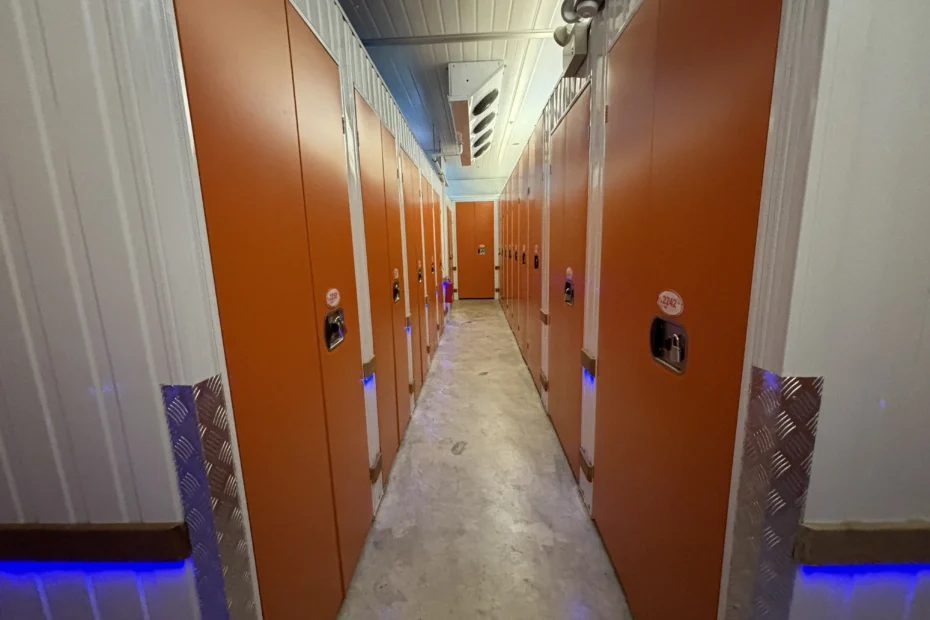Wine is so much more than just a beverage — it’s a dynamic product that keeps changing even after it’s been bottled. But how well it evolves really hinges on how you store it. While many folks stash their wine on kitchen shelves, in the fridge, or even in fancy racks, these setups often fall short of creating the ideal environment.
In this article, we’ll explore the essential conditions that wine requires, the typical pitfalls of home storage, and the better options available for those looking to store their wine the right way — whether for personal enjoyment, gifting, or aging it for the long haul.
What Wine Needs to Stay at Its Best
To keep wine in top shape and help it age gracefully, there are a few key things it needs:
- Consistent temperature: Aim for around 12°C to 14°C
- Moderate humidity: Keeping it between 60–70% helps prevent corks from drying out
- Minimal light exposure: Especially from UV rays, which can harm the wine
- Stillness: Vibration can disrupt the aging process
- Proper angle: Store bottles with corks on their side to keep the cork moist
If any of these elements are off, even the finest bottles can start to decline sooner than expected.
Why Home Environments Fall Short
1. Room Temperature Is Too Warm (and Inconsistent)
In Singapore, the average room temperature tends to linger around 27–30°C, which is way too warm for wine. Even in air-conditioned spaces, temperatures can fluctuate throughout the day or when the A/C takes a break. These shifts can make wine expand and contract, putting stress on the cork and leading to oxidation.
2. Humidity Is Hard to Control
Finding the right humidity level is tricky. Too little moisture can dry out corks, while too much can invite mold. Most homes don’t come with built-in humidity control, making it tough to hit that sweet spot of 60–70%.
3. Light Exposure Is Everywhere
Natural sunlight and indoor lighting, especially fluorescent and LED bulbs, give off UV rays that can break down the compounds in wine. Over time, this can dull the flavors and aromas, particularly for wines stored in clear or light-colored bottles.
4. Movement and Vibration Add Up
It might seem harmless, but everyday vibrations—like walking around, opening and closing doors, or even the hum of appliances like washing machines and fridges—can disturb the sediment in wine. This can affect clarity and mess with how the wine matures.
5. Storage Position May Be Wrong
Wines with corks should be stored horizontally to keep the cork moist. If they’re left upright for too long, corks can dry out, shrink, and let air in, which leads to spoilage. Unfortunately, many home setups overlook this important detail. increase foot traffic and enhance the customer experience, all without the hefty price tag of traditional malls.
If You’re Planning to Age or Collect Wine, Storage is Key
If you’re picking up wine for a quick sip this week, the stakes aren’t as high. But if you’re:
- Saving bottles for that special moment
- Collecting wines to let them mature beautifully over the years
- Investing in rare or vintage finds
…then how you store them becomes crucial. Even small mistakes in temperature or humidity can spoil a bottle’s quality over time—long before you get the chance to pop the cork.
What You Can Do Instead
If setting up a home wine cellar or getting a wine fridge isn’t an option for you, don’t worry! Here are some great alternatives:
- Opt for a dedicated wine fridge: These are specifically designed to maintain stable temperatures and allow for horizontal storage, making them a better choice than regular fridges.
- Store your wine in a cool, dark cupboard, away from appliances and windows: If you’re looking for short-term storage, find the most temperature-stable spot in your home.
- Think about professional wine storage: If you have a larger collection or want to age your wine for a longer period, specialized wine storage facilities provide the perfect conditions for preservation.
Final Thoughts
Wine is a delicate thing. It reacts to its surroundings much like food or art does — subtly and over time. Knowing how to take care of it properly can really make a difference between a bottle that ages beautifully and one that falls flat when you finally pop the cork.
Whether you’re just starting your wine journey or you’re a seasoned collector, being mindful of these storage essentials can help you safeguard what you love. After all, good wine deserves a little extra attention.

